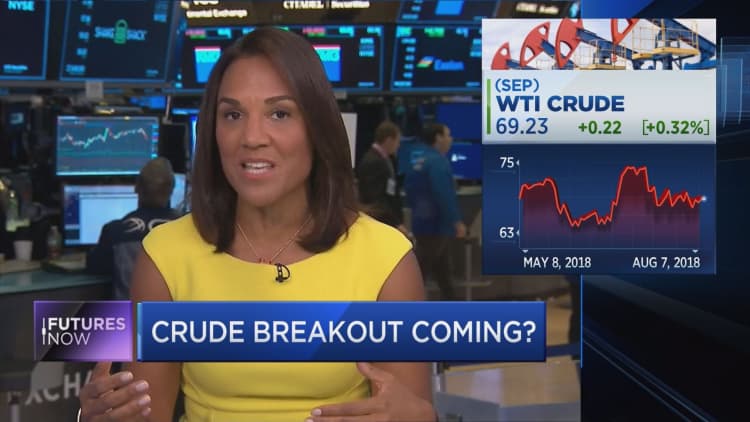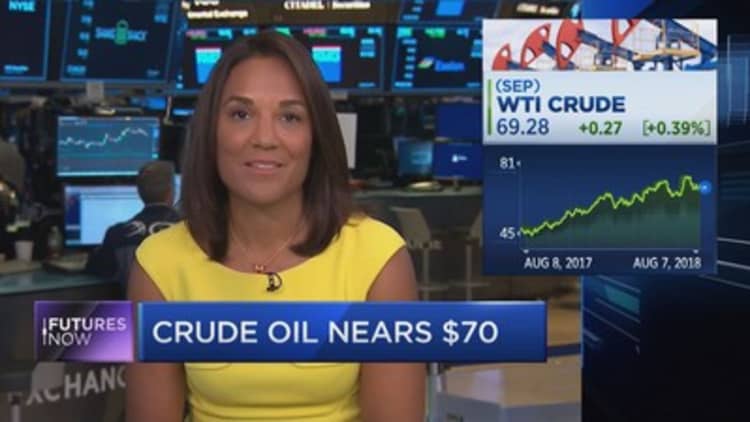
Crude oil tanked on Wednesday as a wave of sanctions on Iran earlier in the week failed to give commodity prices the big boost traders were looking for.
If Iran keeps getting squeezed, it could mean a major disruption to global oil markets, says one expert.
"What I think we really want to be watching over the next couple of weeks is really what happens in terms of the Iranian response to the re-imposition of sanctions," Helima Croft, global head of commodity strategy at RBC Capital Markets, told CNBC's "Futures Now" on Tuesday.
"Do we see the Iranians, for example, restart their nuclear program? Do we see more aggressive efforts to target ships in key waterways?" Croft continued.
U.S. officials said this week that the renewed sanctions would have a significant impact on the Iranian economy. However, Croft notes that the Iranian government shows little signs of backing down. Iran President Hassan Rouhani previously threatened to block the Strait of Hormuz, a major oil transport artery, if the U.S. intervened in the nation's exports.
The sanctions that came back into effect this week were not on Iranian oil, Croft is quick to remind traders. They were instead on transactions of items such as precious metals and automobiles and the issuance of sovereign debt.
Commodity markets have yet to see the impact of those sanctions on oil prices, says Croft.
"We're not really seeing the effects yet of the sanctions policies on energy so I think we're really going to get that test come September, October, November when foreign refineries are either going to have to make drastic reductions on Iranian imports or go to zero in order to avoid U.S. sanctions," said Croft.
The U.S. is set to reimpose sanctions on Iranian oil on Nov. 4, according to RBC, a move that could take more than 1 million barrels of Iranian oil off global markets by the end of March.
Until then, Saudi Arabia is playing a tricky game of tightrope keeping oil prices and global supplies at an equilibrium.
"The Saudis have to balance the desire to help out President [Donald] Trump in terms of putting additional barrels on the market while really having a floor for oil prices," said Croft. "The Saudis are waiting to see how fast the Iranian barrels roll off and how many additional do they need to put on the market to fill the gap."
West Texas Intermediate crude declined more than 3 percent on Wednesday, falling below $67 a barrel. It has not traded above $70 this month.



